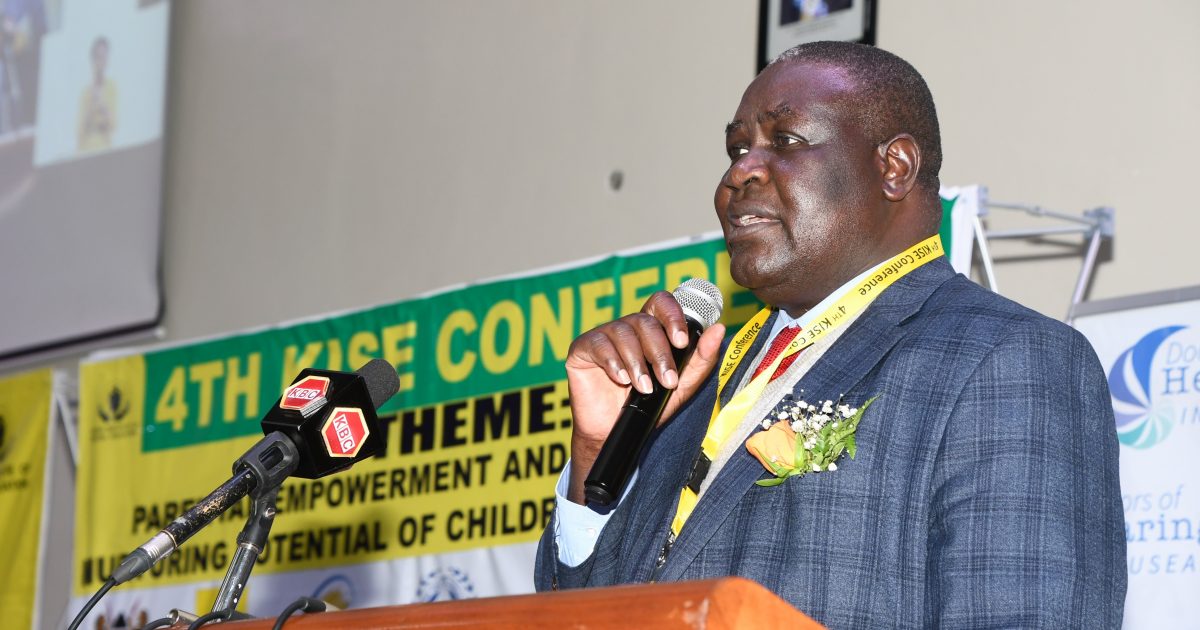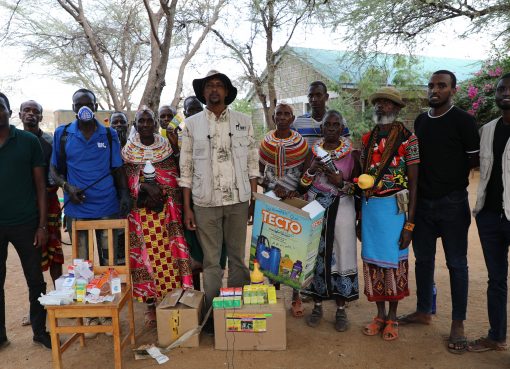The Ministry of Education wants the Kenya Institute of Special Education (KISE) to be upgraded into a Semi-Autonomous Government Agency.
The Ministry made the recommendations in a memorandum submitted by the Presidential Working Party on Education Reform tasked to review the Competency Based Curriculum.
Principal Secretary, State Department for Early Learning and Basic Education, Dr. Julius Jwan, said the facility which is one of the best funded by the government and equipped with expensive devices, if upgraded, will open regional branches across the country, thereby bringing services closer to the people.
“The government has already released money for purchasing specialized equipment for the institute,” said the PS while assuring of the government’s continued support on the work done at the facility.
Jwan noted that since learners with special needs need to be handled with care, schools have been given instructions to put in place structures so that they can accommodate them.
“The Ministry has conducted assessments on what learners need. We have been providing capitation for every learner of which those with special needs receive more than those in regular schools,” he added.
The PS was speaking during the 4th KISE Conference: Parental Empowerment and Engagement held at the Kenya Institute of Special Education (KISE) at Kasarani, in Nairobi where he represented the Cabinet Secretary for Education Ezekiel Machogu.
The two-day event, the first to be held in Kenya themed ‘Parental Empowerment and Engagement in Nurturing Potential Children with Disabilities’ had drawn participants from Kenya, Mauritius, Nigeria, Somalia and the United Kingdom.
The conference’s objective is to give parents a chance to speak on how they take care of the children day and night so that experts can encourage them on how to take care of them.
Speaking at the event, the Founder of Andy Speaks 4 Special Persons Africa and Board Director at the National Council for Persons with Disabilities Ms. Sylvia Mochabo, said parents of children with autism are in support of the Competency Based Curriculum as it has opened opportunities for children with autism to discover themselves.
She however, noted that for children with disabilities to benefit from policies, development projects, health and education, the government should ensure that there is synergy between the Ministries of Health and Education on issues that concern them.
Mochabo said the government should look at solutions that will benefit special needs parents who support their disabled children as caregivers, noting that the current regulations require that the beneficiaries be the affected children, yet some are confined in wheelchairs, while others have autism and are blind among other forms of disabilities.
“These children are 100 percent dependent on their parents, they might never get to enjoy the benefits, unless given to parents,” she stated.
In his remarks, Director of KISE, Dr. Norman Kiogora, encouraged parents with children with disabilities to enroll them in special schools instead of hiding them.
“Let us influence other parents to bring their children on board. Disabled people when given an opportunity can excel,” Kiogora said.
He said children with disability need a little help and someone to believe in them and to encourage them to never stop trying.
At least around 500 parents with special needs children attended the meeting to share their stories, a move that will encourage others who are hiding their children to enroll them in special needs schools.
By Bernadette Khaduli





